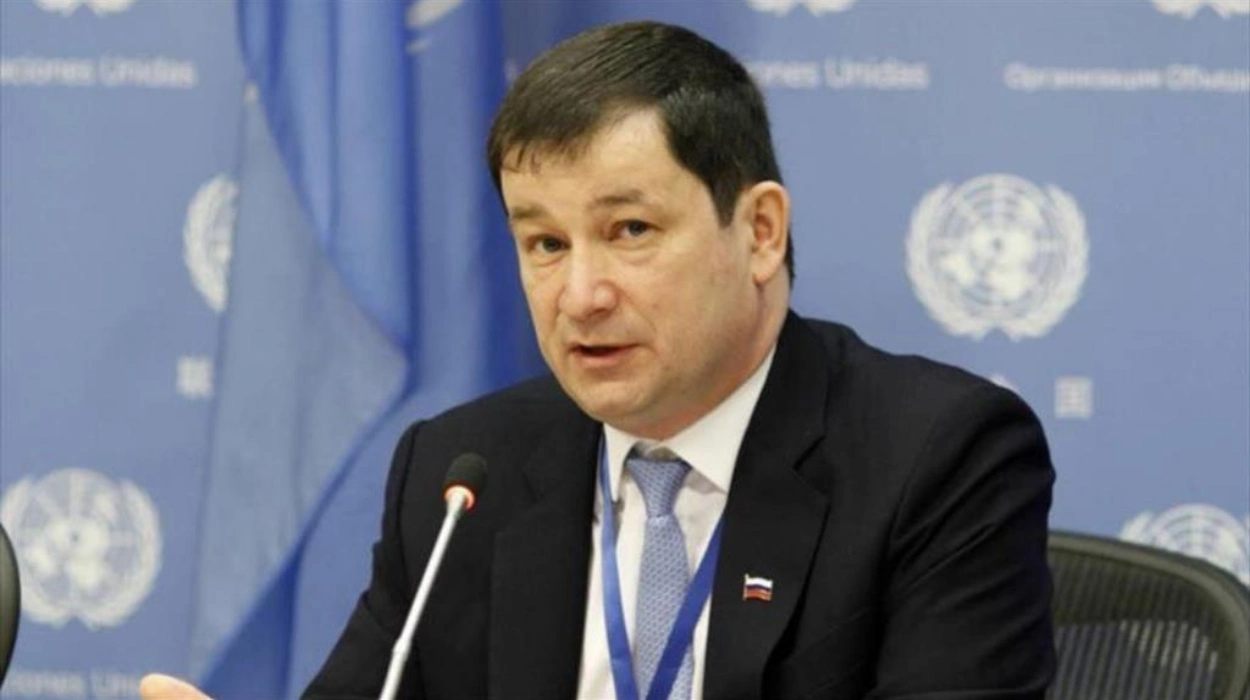USA (Parliament Politics Magazine) – Russia has strongly condemned the United States for blocking a UN Security Council resolution calling for a ceasefire in Gaza, calling the veto irresponsible amid escalating violence. The US veto prevented global consensus on ending hostilities despite widespread international calls for urgent humanitarian relief.
Russia’s Strong Reproach of the US Veto
As reported by James Smith of Reuters, Russia’s Deputy Ambassador to the United Nations Dmitry Polyansky sharply denounced the US veto on September 20, 2025, saying it
“undermines the Security Council’s credibility”
and
“deliberately prolongs the suffering of civilians in Gaza.”
Polyansky emphasised Russia’s call for an immediate ceasefire and urged all parties to engage in dialogue to halt the violence.
Details of the Security Council Vote
According to Lara Ahmed of Al Jazeera, the UN Security Council convened on September 20 to vote on a draft resolution demanding an immediate, durable and sustained ceasefire in Gaza to allow humanitarian aid flow and protection for civilians. The resolution had broad backing from the Council’s members except the United States, which exercised its veto power to block it, citing concerns over national security interests and Hamas’s designation as a terrorist organisation.
US Justification for the Veto
John Hamilton from AP News reported that Ambassador Linda Thomas-Greenfield, speaking for the US delegation, asserted that the resolution failed to adequately address Israeli security concerns and the role of Hamas in the conflict. She stated,
“The United States supports Israel’s right to defend itself against terrorism. We cannot support a ceasefire that does not include the cessation of Hamas attacks and rocket fire.”
International Reactions and Humanitarian Concerns
As noted by Rashid Al-Mansoori of the BBC, Russia’s condemnation of the US veto was echoed by several other UN member states calling for an end to hostilities in Gaza. Humanitarian agencies warned that the lack of a ceasefire prolongs a worsening crisis with thousands of civilians displaced, facing severe shortages of food, water, and medical supplies. The UN Relief and Works Agency publicly deplored the Security Council’s failure to reach consensus, urging all parties to prioritise civilian protection.
Russia’s Call for Dialogue
Dmitry Polyansky reiterated Russia’s position that military actions must be paused immediately to allow humanitarian corridors and negotiations to begin.
“Russia remains committed to diplomatic solutions and urges the Security Council to put human lives before political interests,”
he said. Russia has advocated for a balanced approach addressing the security of Israelis and the rights and safety of Palestinians.
Broader Geopolitical Implications
This development further illustrates the fractured nature of international diplomacy surrounding the Israeli-Palestinian conflict. The US veto represents strong backing for Israel but has alienated some allies and intensified criticism from Russia and other nations. Some analysts see the veto as a sign of growing East-West tensions spilling into Middle East diplomacy.
Previous UN Efforts Blocked
This is not the first time the US has used its veto power regarding Gaza ceasefire resolutions. Similar attempts earlier in 2025 to secure ceasefires were also blocked by the US in the Security Council, drawing repeated rebukes from Russia and China, who accuse Washington of bias and undermining the UN’s peacekeeping role.
Current Situation on the Ground
As detailed by global correspondents, the conflict continues to escalate in Gaza with intensifying air strikes and ground operations resulting in significant civilian casualties. Evacuation efforts are hampered by ongoing hostilities and infrastructure damage. Human rights organisations have voiced alarm at the humanitarian disaster unfolding.
The next steps remain uncertain as political divisions at the UN Security Council persist. Russia and its allies are expected to push for renewed efforts to draft a resolution or initiate international talks. Meanwhile, the US remains firm on conditions tied to Hamas cessation of violence. The international community watches closely for developments.


